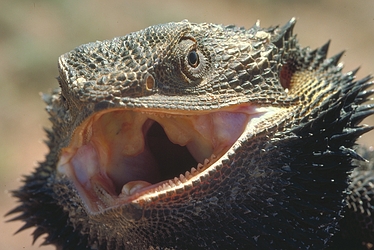Bearded Dragon Antibiotic Injection: What You Need To Know
Introduction
Bearded dragons are a popular pet due to their calm nature and easy-to-care-for lifestyle. Despite being a low-maintenance pet, they may sometimes require medical attention, including antibiotics. Antibiotic injections are one of the available treatment options. This blog post will discuss all you need to know about bearded dragon antibiotic injection treatment.
What is bearded dragon antibiotic injection?
Antibiotics are medications used to treat bacterial infections in both humans and animals. When a bearded dragon has a bacterial infection, a veterinarian may prescribe antibiotics to help fight the infection. Antibiotic injections are a means of administering the medicine directly into the bloodstream, making it one of the quickest and most effective ways to deliver antibiotics to your pet.

When does a bearded dragon need antibiotic injection?
Bearded dragons may need antibiotic injections if they have bacterial infections such as abscesses, pneumonia, or other respiratory infections. This treatment option is generally used for acute infections that require fast treatment to prevent the bacteria from spreading to other parts of the dragon’s body.
What are the types of antibiotics given to bearded dragons?
In general, antibiotics that are commonly given to bearded dragons include: amikacin, enrofloxacin, and cefazolin. These antibiotics are known to be effective against the types of bacteria that cause infections in reptiles.

How is the antibiotic injection given?
The antibiotic injection is typically given by a veterinarian as they will know the best location on your pet’s body for the injection. To give the injection, the vet will use a fine needle to inject the antibiotic directly into the muscle, usually in the hind legs. The location for the injection can vary depending on the vet’s preference.
How long does the treatment last?
The duration of antibiotic treatment depends on the severity of the infection. Most bearded dragons require a minimum of two to four weeks of antibiotics, with some cases requiring more extended treatment. It is essential to follow the vet’s instructions regarding the dosage, frequency of administration, and duration of treatment.
Are there side effects of bearded dragon antibiotic injection?
While antibiotics can save a bearded dragon’s life, they can also have negative side effects. Common side effects of antibiotics include loss of appetite, diarrhea, or lethargy. These side effects are temporary and should go away within a few days of stopping the medication.

Conclusion
Antibiotic injections are an effective treatment for bacterial infections in bearded dragons. As a pet owner, it is essential to be observant of your pet’s health and seek medical attention when necessary. If your bearded dragon requires an antibiotic injection, follow your vet’s instructions, and be attentive to your pet’s behavior, food intake, and water intake during treatment. If you suspect any adverse reactions, contact your veterinarian immediately.
